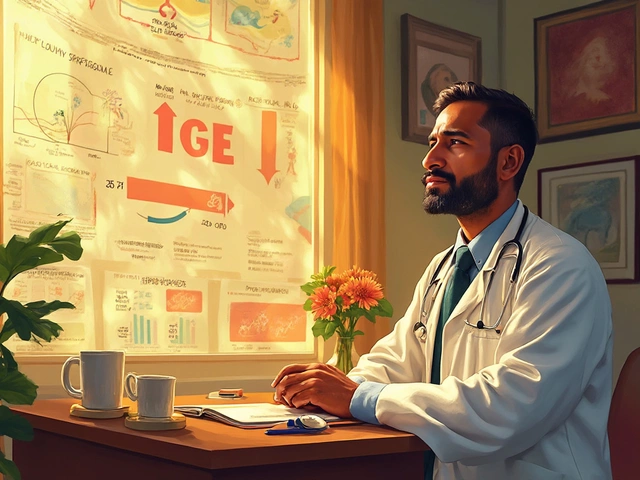Early Detection: How to Catch Health Issues Before They Get Serious
Ever wish you could see a health problem coming and stop it early? You can, by paying attention to your body and following a few easy habits. Early detection isn’t magic – it’s about noticing signs, getting the right tests, and acting fast.
Know the Red Flags Your Body Sends
Most diseases give you tiny warnings. A new cough that lasts weeks, unexplained weight loss, or a mole that changes shape are classic examples. Write down anything that feels different, even if it seems minor. A simple notebook or phone note can become your early‑warning system.
When it comes to cancer, early detection saves lives. Breast, cervical, colon, and prostate cancers all have proven screening tests that catch tumors when they’re tiny. If you’re over the recommended age or have a family history, ask your doctor about the right schedule.
Make Regular Screenings Part of Your Routine
Think of screenings like oil changes for a car. Blood pressure, cholesterol, blood sugar, and BMI checks should happen at least once a year. Women should get pap smears and mammograms on schedule; men should discuss PSA tests with their doctor.
Don’t wait for symptoms to appear. Many conditions, such as hypertension or early‑stage diabetes, have no obvious signs. A quick blood test can reveal a problem before it harms your heart or kidneys.
Technology makes it easier, too. Home kits for cholesterol or HbA1c let you track numbers without a lab visit. Wearables can alert you to abnormal heart rates or sleep patterns that merit a check‑up.
Finally, stay informed. Health guidelines change, and new tests become available. Subscribe to a reliable health newsletter or follow the Ministry of Health’s updates to know when a new screening is recommended.
Early detection is a habit, not a one‑time event. By listening to your body, getting routine tests, and keeping up with the latest recommendations, you give yourself the best shot at staying healthy. Start today: note any new symptoms, book that overdue blood test, and make prevention a regular part of your life.

What Cancer Is 100% Curable? Facts, Myths, and Hope
Everyone wants to know if there’s a cancer that’s 100% curable, and the answer might surprise you. This article breaks down which cancers can be fully treated when caught early, separates myth from reality, and shares the latest facts about recovery. Learn how timing, treatment, and a bit of luck can play a huge role in beating cancer. You’ll also find tips for early detection and how new treatments are changing the outlook for many people. If you or someone you love is facing a cancer diagnosis, this article offers practical, real-world hope without sugarcoating the truth.

30 30 30 Diet: What It Really Means for Weight Loss
Apr, 27 2025

Why Medical Tourism Sparks Heated Debates
Feb, 14 2025


